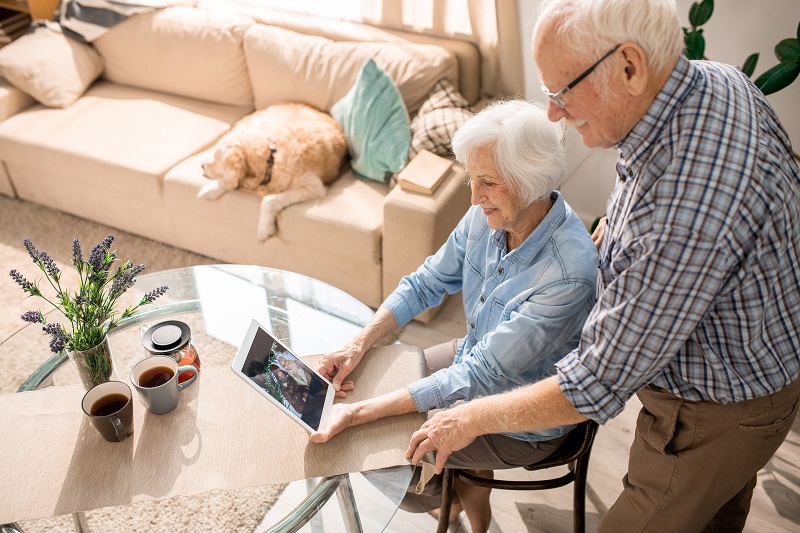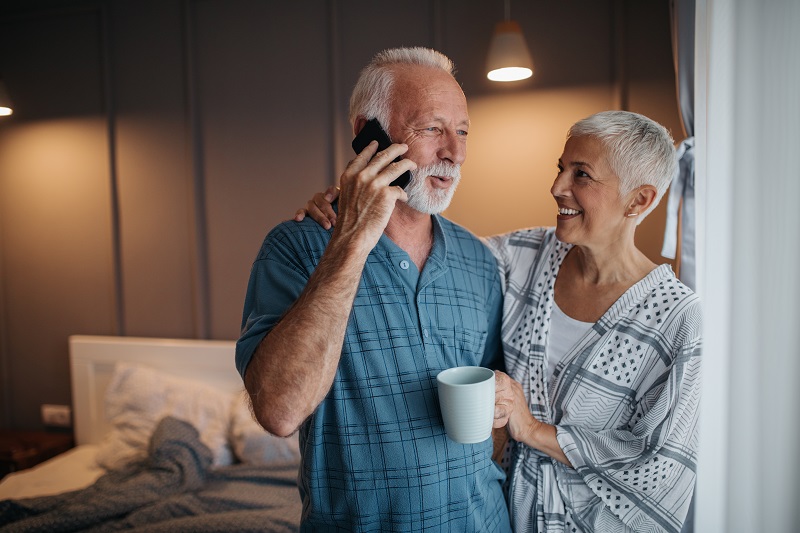
Even if you can be with them physically right now, there are some ways in which you can help your parents stay safe and sane during these hard times. The new coronavirus left every single people in the world concerned about COVID-19 and the respiratory disease it causes.
Those who are not worried for themselves, are worried for their loved ones, especially for their elderly parents. COVID-19 has demonstrated that it’s particularly serious for older adults whose immune systems naturally weaken as they age, and especially for those with chronic medical conditions, according to Dr. Samir K. Sinha, a member of the American Red Cross Scientific Advisory Council.
In fact, statistics show that 8 out of 10 deaths reported in the U.S. related to COVID-19 have been in adults 65 years old and older, according to the Centers for Disease Control and Prevention.
If your parents are old and fall in one of the vulnerable categories, you probably need to help them stay protected. If you wonder how you can help them, here are 4 things you can do for them right now.
1. Do the grocery shopping
When you’re grocery shopping for yourself or for your family, make sure to ask them what they need, this way, they won’t have to leave their homes at all. You’re likely well aware of the shopping hysteria surrounding coronavirus. Also, personal care and household items are very hard to find, they have completely disappeared from store shelves. Lines are out the door and seem endless. Moreover, grocery shopping online isn’t an option for everybody, considering that prices have skyrocketed.
And these are just a few of the reasons why you should do the grocery shopping for your elderly parents.
Many Americans are already at home self-quarantining, or under shelter-in-place orders, s your parents may be scared of going to a grocery store and fear being exposed. That’s understandable, according to Maria Brown, an assistant research professor at Falk College and member of Syracuse University’s Aging Studies Institute.
“Because of their vulnerability and the longevity of the coronavirus, older adults should be avoiding public spaces where other people can be coughing or sneezing near them, or depositing the virus on objects or surfaces that they end up touching,” said Brown.
Let your parents stay home and take the time to do the grocery shopping for the and drop off the bags on their doorsteps. If this is not possible, help them place online orders that can be delivered at their house.

2. Call or video chat regularly
The CDC says the virus is spreading mainly from person-to-person contact, particularly between people who are within about 6 feet of each other. Considering that, many people have already separated from their family members, including their parents.
To avoid any possible risk of exposing your elderly parents, use the technology to stay in contact with them every day. You can use Skype, FaceTime or give them a call. It’s important to remain in communication with them in order to keep their spirits up and make sure they’re feeling well.
“Staying in touch also helps us to verify their mental and physical health as these days of social distancing wear on,” Brown said.
We suggest setting up a schedule with specific times when you’ll call, this way, they’ll have something to look forward to throughout the day.
3. Warn them about scams
Scammers are preying on Americans during this medical and financial crisis. Make sure that you’re parents are informed and aware of these scams so they can protect themselves.
The Federal Trade Commission has issued some guidelines for avoiding scams. Pass these guidelines along to your parents, or anyone else, for that matter, because it’s important to stay protected. Here are some highlights from the FTC’s tips:
- Hang up on robocalls and don’t press any numbers.
- Know who you’re buying from. Online sellers may claim to have in-demand products in stock when they actually don’t.
- Don’t click on links from sources you don’t know.
- Do your homework before making donations. If someone wants donations by cash, gift card or wiring money, don’t do it.
- FYI, here are a few specific ways scammers are using the coronavirus to steal your information.

4. Keep them busy
These times are hard for everyone, but when it comes to your elderly parents, they are certainly way more scared than you are. Older Americans face special challenges when they remain at home.
“The inactivity that can come with being confined to the home can cause declines in physical health and in physical abilities,” Brown said. “Older adults are also at greater risk of developing depression in social isolation, and their elevated risk for bad outcomes from this virus can cause higher levels of anxiety and lead to sleep difficulties.”
If your parents are feeling lonely or bored, try to give them ideas of things they can do to keep their minds busy and occupy their time. Encourage them to read a book now that they have all the free time in the world, play a board game, watch a movie, do a puzzle or even go for a walk, but only as long as they’re keeping their distance from others.
Additionally, religious groups across the country can now be found online, and studios have brought movies in the theater that can be viewed easily from the comfort of our couch.
Also, make sure that your parents are taking the pandemic seriously and are staying protected. Explain to them the importance of social distancing and make sure they understand it.












































